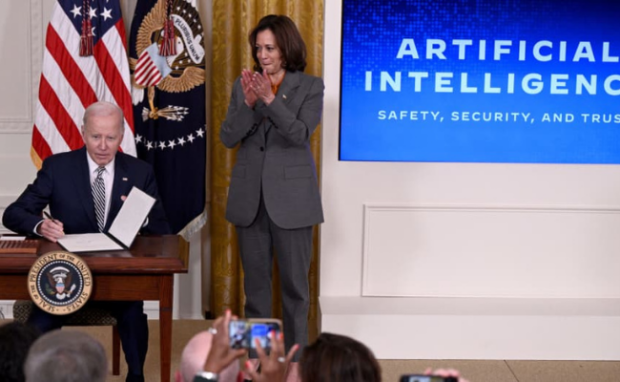AI consortium to ensure AI safety worldwide
The United States National Institute of Standards and Technology encourages everyone to participate in a new consortium for AI safety. Its members will develop innovative measures for evaluating artificial intelligence to enhance this technology’s safety and trustworthiness. Moreover, it responds to President Joe Biden’s recent executive order.
More are becoming aware of artificial intelligence’s risks, so countries are finding ways to mitigate them. Fortunately, they are banding together to create global standards that could help everyone benefit safely from this digital revolution. Soon, your country will likely follow the consortium’s standards, so you should see how it could impact your life.
This article will discuss the goals and responsibilities of the recently announced AI consortium. Later, I will elaborate on the US executive order that supports this new organization.
What is the AI consortium’s purpose?

The NIST is part of the US Department of Commerce, which launched a US AI Safety Institute. It was one of the announcements in the United Kingdom’s AI Safety Summit, in which US Secretary of Commerce Gina Raimondo participated.
The AI consortium will help the NIST perform its AI goals stipulated in President Biden’s latest executive order. Under Secretary of Commerce for Standards and Technology and NIST Director Laurie E. Locascio explained the AI consortium’s goals with the following statement:
“The US AI Safety Institute Consortium will enable close collaboration among government agencies, companies, and impacted communities to help ensure that AI systems are safe and trustworthy.”
“Together, we can develop ways to test and evaluate AI systems so that we can benefit from AI’s potential while also protecting safety and privacy,” he added. Also, the US AI Safety Institute will use the NIST’s ongoing work to build the foundation for trustworthy AI programs.
That framework will be a voluntary resource for organizations that must manage AI risks and enhance their reliability. NIST’s Elham Tabassi, federal AI standards coordinator and a member of the National AI Research Resource Task Force, explained the purpose of the NIST’s collaborative research:
You may also like: NASA robot oversees oil rigs for testing
“The Institute’s collaborative research will strengthen the scientific underpinnings of AI measurement so that extraordinary innovations in artificial intelligence can benefit all people in a safe and equitable way.”
Jacob Taylor, NIST’s senior advisor for critical and emerging technologies, also stated, “Participation in the consortium is open to all organizations interested in AI safety that can contribute through combinations of expertise, products, data, and models.”
“NIST is responsible for helping industry understand how to manage the risks inherent in AI products. To do so, NIST intends to work with stakeholders at the intersection of the technical and the applied.”
What is inside the US AI executive order?

Biden’s latest executive order is an essential part of the AI consortium’s purpose. The NIST says the EO gave it the following responsibilities:
- The development of a companion resource to the AI Risk Management Framework or the AI RMF
- Guidance on authenticating content created by humans and watermarking AI-generated content
- A new initiative to create guidance and benchmarks for evaluating and auditing AI capabilities
- The creation of test environments for AI systems
You may also like: TikTok strengthens its child safety features
The AI consortium aligns with one of the AI executive order’s goals: promoting innovation and cooperation. It aims for the United States to work with experts worldwide to ensure AI standards. Moreover, the EO has these other objectives:
- New AI Standards: The US will ensure AI systems are safe and secure before they launch publicly.
- Protecting Americans’ privacy: The executive order will protect privacy by prioritizing federal support for developing relevant measures.
- Advancing Equity and Civil Rights: The EO will provide clear guidance to Federal benefits programs, federal contractors, and landlords.
- Advancing US leadership worldwide: The EO will improve the creation and implementation of essential AI standards with international partners.
- Consumer and student protections: The executive order will help create resources for educators using AI-enabled tools.
- Worker support: The new law will encourage developing principles to mitigate the harms and maximize the benefits of AI.
- Ensure responsible AI use: The rule will ensure effective and responsible government use of AI.
Conclusion
The UK Ai Summit announced the NIST’s upcoming AI consortium. It invites experts and companies from around the world to help the new organization uphold AI safety.
Learn more about the Artificial Intelligence Safety Institute Consortium by visiting the Federal Register website. Also, interested organizations may join by submitting a Letter of Interest (LOI) by December 2, 2023.
More importantly, everyone should know more about artificial intelligence and its emerging capabilities. Follow these digital trends at Inquirer Tech.